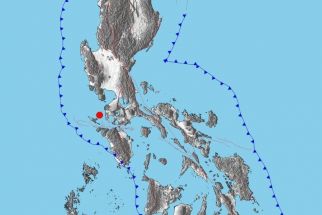RP seeks KL’s help over deportations
March 25, 2002 | 12:00am
KUALA LUMPUR (AFP) — The Philippines has appealed to Malaysia to help reduce the impact of the deportation of thousands of its citizens in a major crackdown on illegal immigrants.
Ambassador Jose Brillantes said "timely information" from Malaysia on the deportations would reduce the burden on authorities in the poverty-stricken southern Philippines who are being swamped by deportees.
Brillantes said the large-scale deportations from Sabah state on Borneo island would be a financial strain on the Philippines’ local authorities.
"Of course, the requirements for relocation, temporary quarters and food will impinge on the local authorities resources," he told AFP.
"We are in close coordination with Sabah authorities. If at all, we would like to have timely information of how many will be deported and what ships are used.
"This will allow us to relay information to Philippine agencies so that they can make preparations and not be caught by surprise. However, both sides are trying to make the deportation orderly and gradually," Brillantes said.
Since Feb. 26, some 10,000 squatter homes have been demolished in Sabah and 6,378 illegal immigrants, mostly Filipinos, have been detained.
The Filipino illegals are given one-way tickets and put on ferries bound for Zamboanga city in the southern Philippines from Sandakan town in Sabah.
The action in Sabah is in line with a tougher approach throughout Malaysia, which is home to 750,000 legal foreign workers and hundreds of thousands of mainly Indonesian illegal immigrants.
Malaysian rights group and opposition parties have criticized the mass deportations, describing the destruction of homes and the detention of women and children as inhumane.
Yap Swee Seng, spokesman for the rights group Voice of the Malaysian People, told AFP that the government should adopt a humane approach in dealing with the illegals.
"If they want to deport them, they should not go around and demolish their homes. It is violation of human rights. What’s more, they are keeping children in detention centers," he said.
"The government should formulate a policy to deport them voluntarily and not arrest and deport them by force."
Teresa Kok, opposition lawmaker with the Chinese-dominated Democratic Action Party, said while she supported the government’s action to deport the illegals, the manner in which it was being done was inhumane.
"I do agree they should be deported. But they should be given a grace period to go home voluntarily. Some of them have resided in the state for 10 years and married locals," she said.
Most of the deported Filipinos are natives of the Sulu and Tawi-Tawi island groups, near the maritime border with Malaysia, but some come from as far as the main northern Philippine island of Luzon.
Brillantes said there were about 500,000 illegal Filipinos and 150,000 legals in Sabah.
"We have to remove the root causes of the illegals coming to Malaysia. It is economic migration. Southeast Asian countries should put their resources together to develop the poverty-hit southern Philippines," he said.
Brillantes warned that the deported illegals would attempt to return if they fail to find employment.
"That is for sure. The border is porous. They have lived in Sabah and may have families here," he said.
Many of the illegals work in the construction, plantation and services sectors.
Asked if there had been reports of rights abuses during the deportations, he said: "There may have been some complaints. We are investigating. But my consulate officials in Sabah reported that the deportation has been orderly."
Ambassador Jose Brillantes said "timely information" from Malaysia on the deportations would reduce the burden on authorities in the poverty-stricken southern Philippines who are being swamped by deportees.
Brillantes said the large-scale deportations from Sabah state on Borneo island would be a financial strain on the Philippines’ local authorities.
"Of course, the requirements for relocation, temporary quarters and food will impinge on the local authorities resources," he told AFP.
"We are in close coordination with Sabah authorities. If at all, we would like to have timely information of how many will be deported and what ships are used.
"This will allow us to relay information to Philippine agencies so that they can make preparations and not be caught by surprise. However, both sides are trying to make the deportation orderly and gradually," Brillantes said.
Since Feb. 26, some 10,000 squatter homes have been demolished in Sabah and 6,378 illegal immigrants, mostly Filipinos, have been detained.
The Filipino illegals are given one-way tickets and put on ferries bound for Zamboanga city in the southern Philippines from Sandakan town in Sabah.
The action in Sabah is in line with a tougher approach throughout Malaysia, which is home to 750,000 legal foreign workers and hundreds of thousands of mainly Indonesian illegal immigrants.
Malaysian rights group and opposition parties have criticized the mass deportations, describing the destruction of homes and the detention of women and children as inhumane.
Yap Swee Seng, spokesman for the rights group Voice of the Malaysian People, told AFP that the government should adopt a humane approach in dealing with the illegals.
"If they want to deport them, they should not go around and demolish their homes. It is violation of human rights. What’s more, they are keeping children in detention centers," he said.
"The government should formulate a policy to deport them voluntarily and not arrest and deport them by force."
Teresa Kok, opposition lawmaker with the Chinese-dominated Democratic Action Party, said while she supported the government’s action to deport the illegals, the manner in which it was being done was inhumane.
"I do agree they should be deported. But they should be given a grace period to go home voluntarily. Some of them have resided in the state for 10 years and married locals," she said.
Most of the deported Filipinos are natives of the Sulu and Tawi-Tawi island groups, near the maritime border with Malaysia, but some come from as far as the main northern Philippine island of Luzon.
Brillantes said there were about 500,000 illegal Filipinos and 150,000 legals in Sabah.
"We have to remove the root causes of the illegals coming to Malaysia. It is economic migration. Southeast Asian countries should put their resources together to develop the poverty-hit southern Philippines," he said.
Brillantes warned that the deported illegals would attempt to return if they fail to find employment.
"That is for sure. The border is porous. They have lived in Sabah and may have families here," he said.
Many of the illegals work in the construction, plantation and services sectors.
Asked if there had been reports of rights abuses during the deportations, he said: "There may have been some complaints. We are investigating. But my consulate officials in Sabah reported that the deportation has been orderly."
BrandSpace Articles
<
>
- Latest
- Trending
Trending
Latest





























